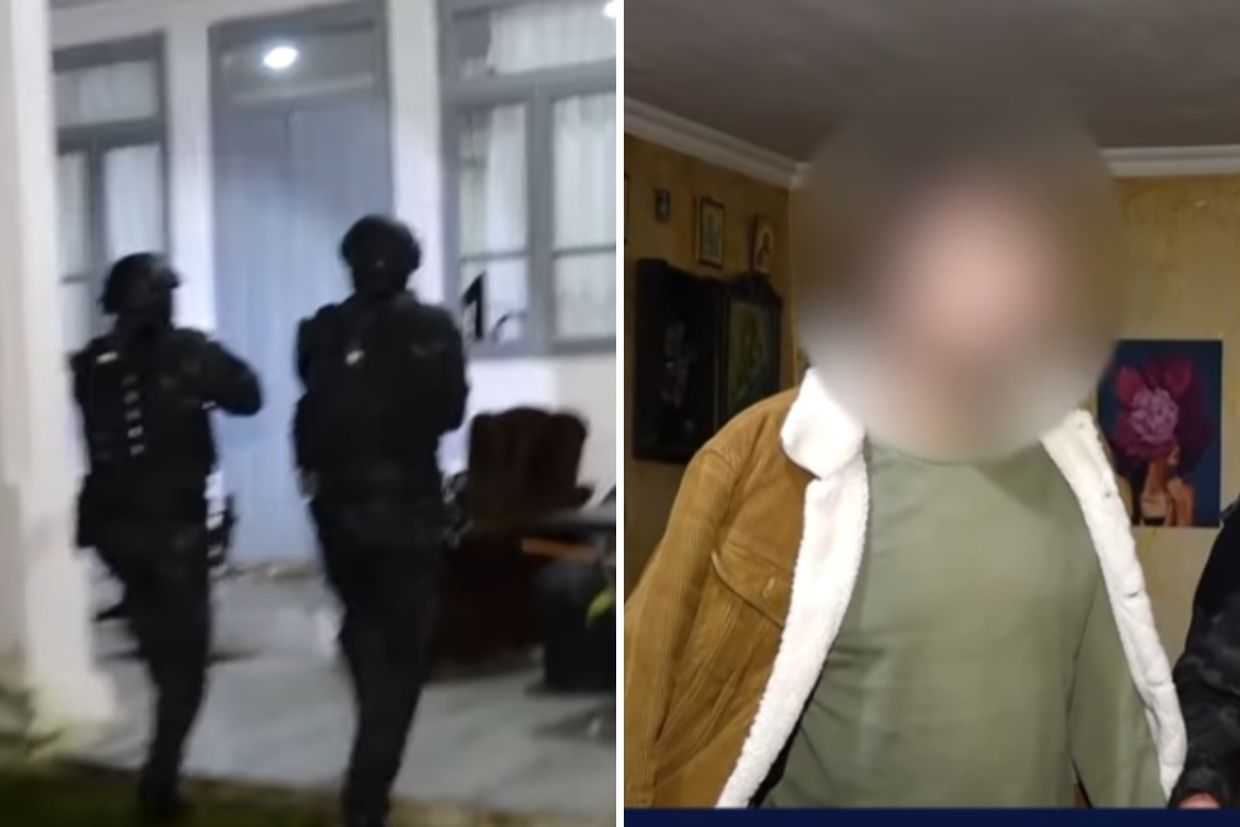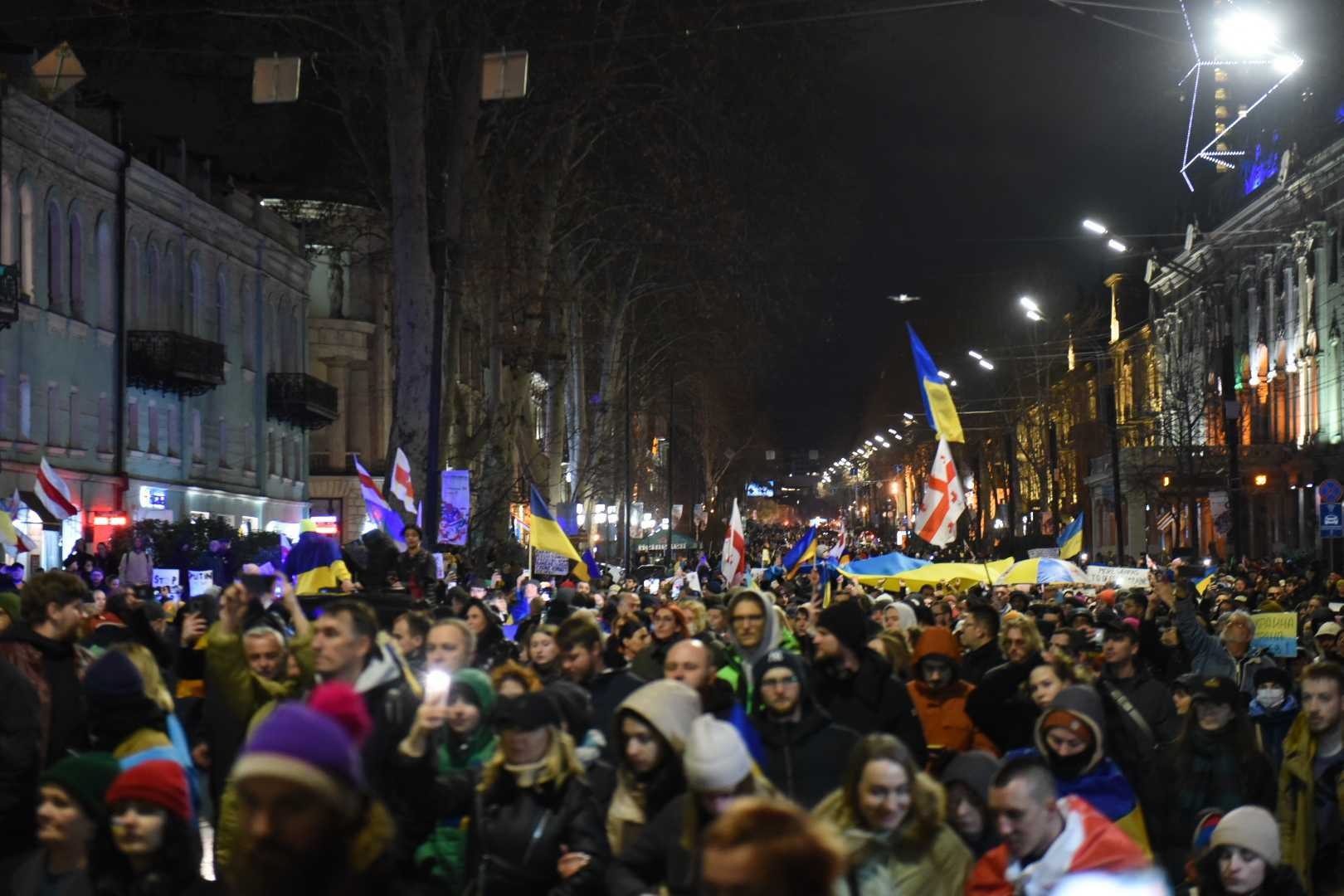
Tens of thousands of people gathered in Tbilisi, including Ukrainian refugees, to express solidarity with Ukraine a year after it began its successful resistance of Russia’s full-scale invasion.
The gathering outside parliament in central Tbilisi on Friday was joined by a group of Ukrainians who marched from the end of Rustaveil Avenue, and by groups of students marching from Tbilisi State University.
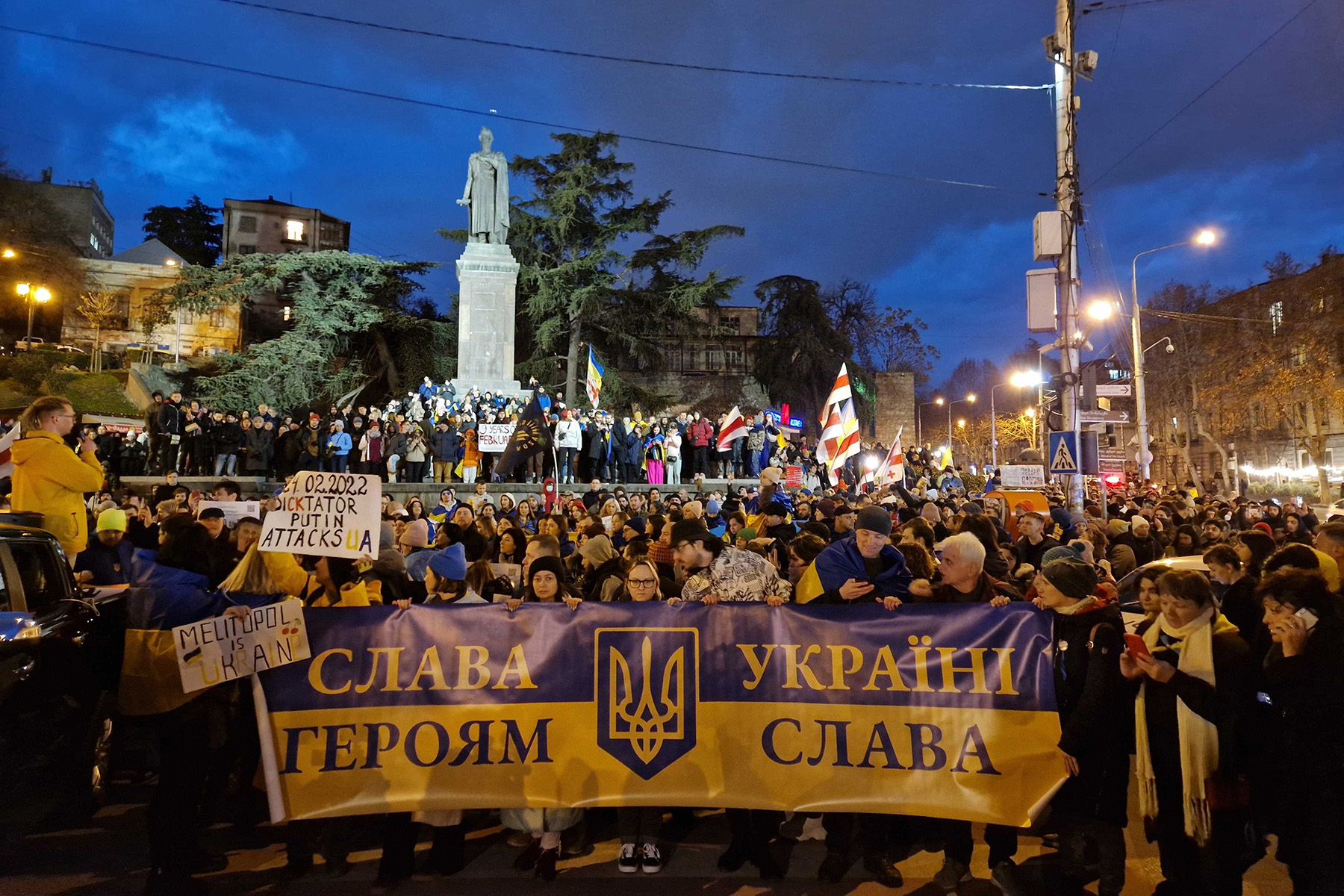
Kyiv Mayor Vitali Klitschko addressed the crowd outside Parliament via video link, thanking Georgians for showing solidarity towards Ukraine.
‘You know all too well what Russian aggression means’, he said.
Klitschko paid tribute to the 36 volunteers from Georgia who died fighting Russia in Ukraine.
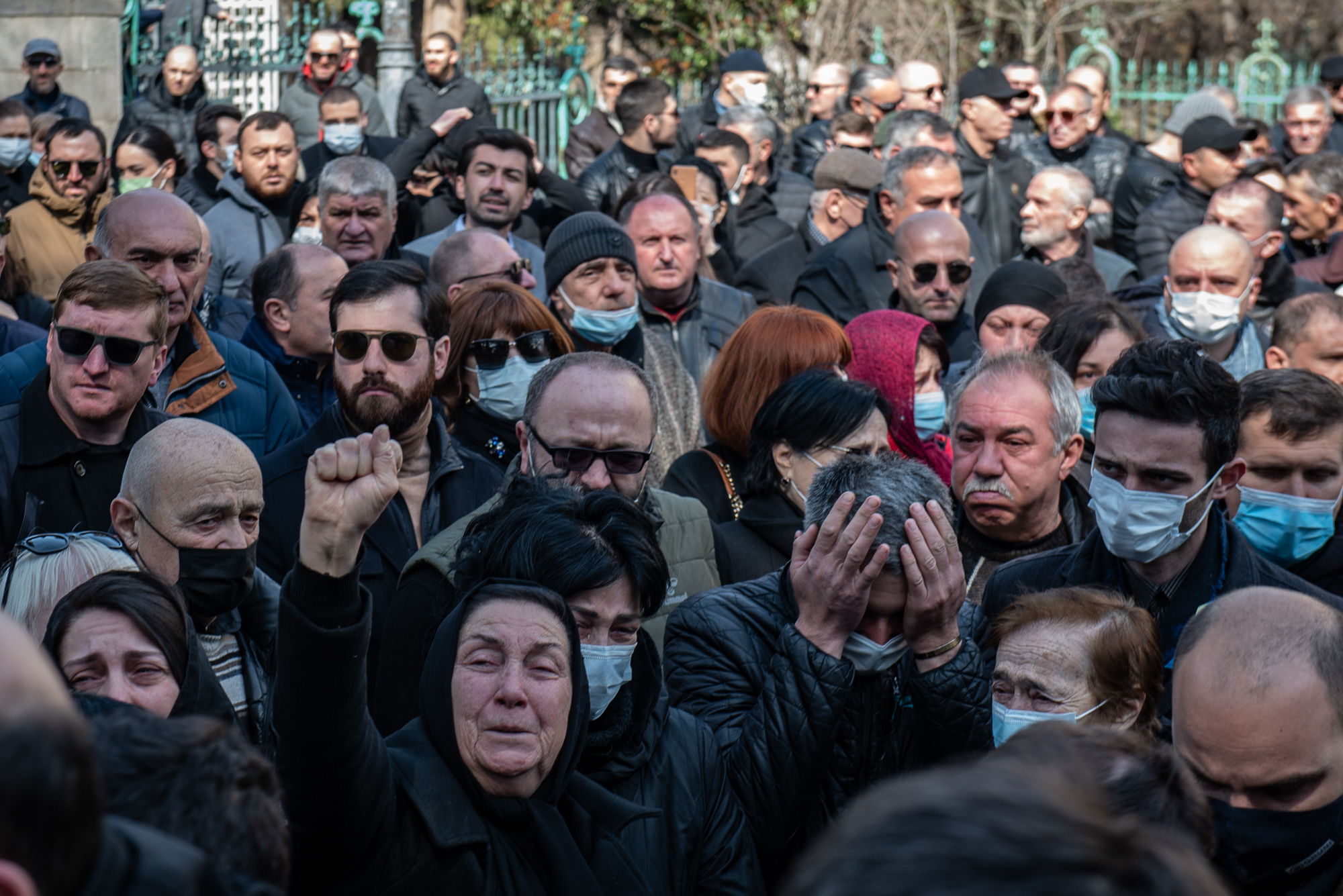
The main demonstration in Tbilisi was announced in late January by a loose coalition of three pro-Western liberal parties — Strategy Aghmashenebeli, Girchi — More Freedom, and Droa. The groups said they planned to launch a ‘national movement’ dedicated to ‘freeing Georgia from collaborationism’ at the event, referring to the government’s ambivalent stance on the war in Ukraine.
Following accusations from some that they were hijacking the date, however, the three parties toned down the domestic angle to make Ukraine the focus of the event.
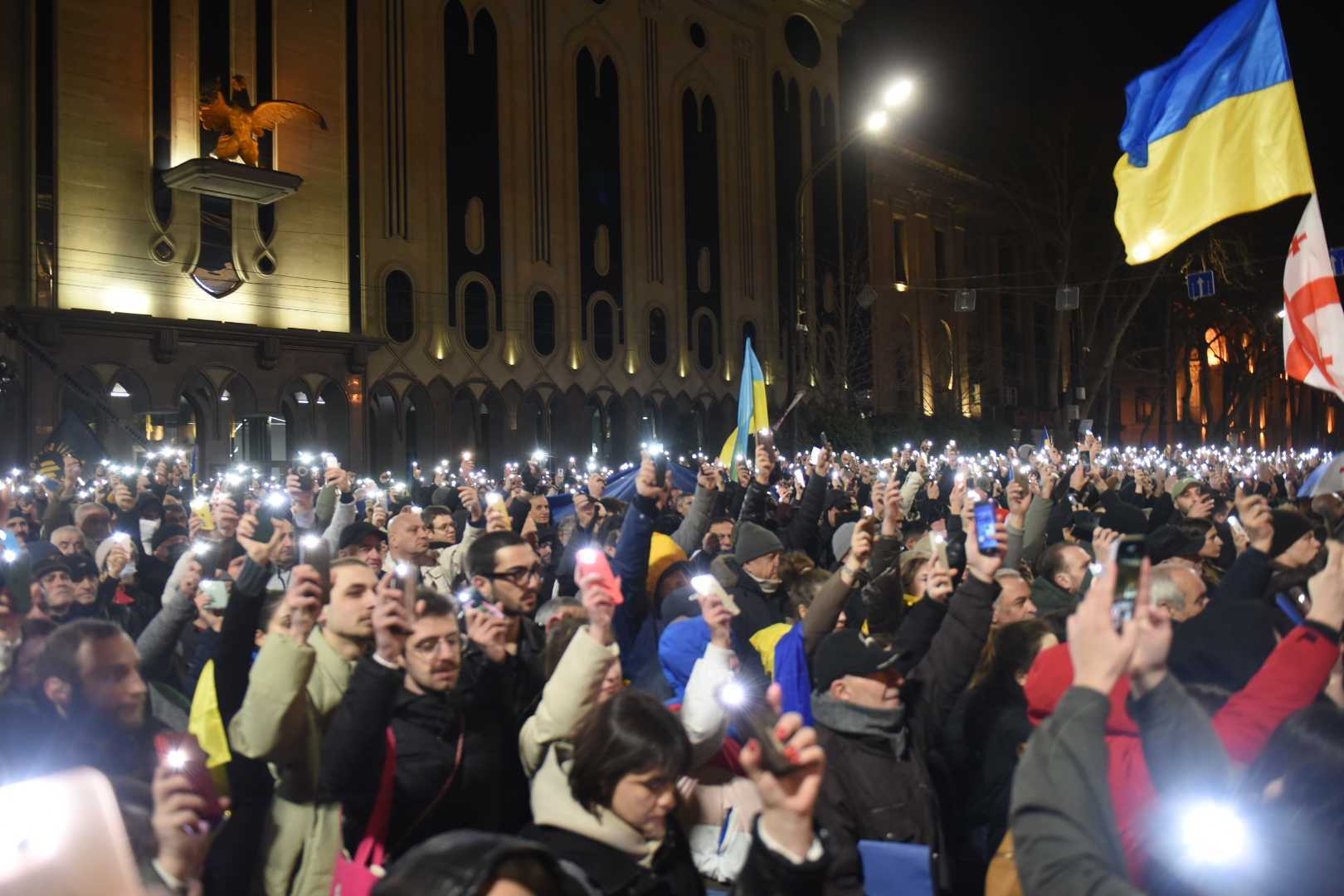
Two separate pro-Ukraine gatherings were also held in Batumi, with Ukrainians bringing photographs of victims of the war and lighting candles on Batumi’s Europe Square. Another demonstration marking ‘a year of resistance’ was held in Kutaisi.
Hundreds of Russians living in Tbilisi also attended an anti-war demonstration outside the Swiss Embassy, which houses the Russian Interests Section due to the lack of diplomatic relations between Russia and Georgia.
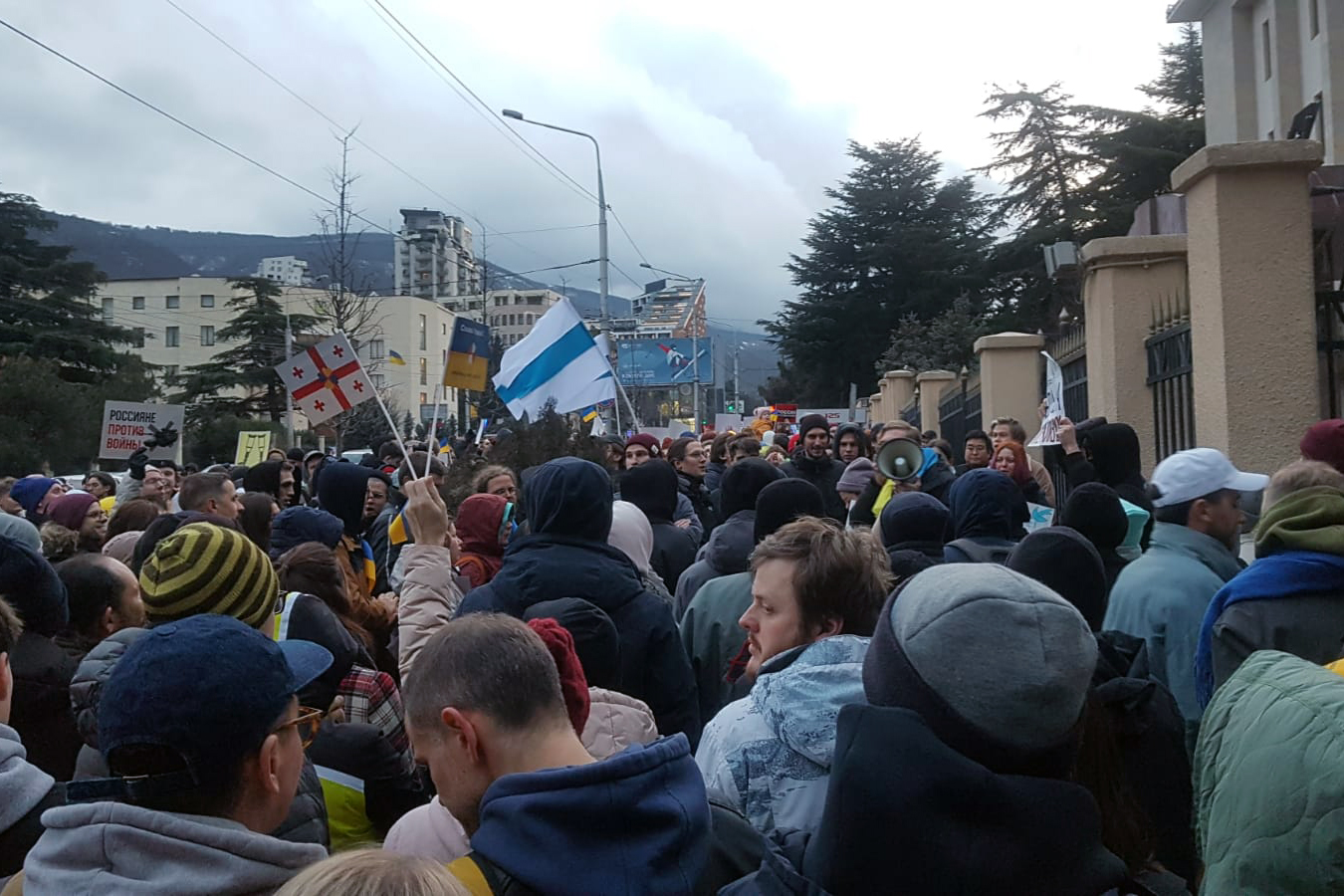
Friday’s demonstrations came as the rift between the Georgian Government and Ukraine, as well as Ukraine’s allies in the West continues to deepen.
The Georgian Government boycotts Ukraine
Despite a formal invitation from Ukraine, no Georgian officials were present in Kyiv during the official event to mark the anniversary, with only opposition figures, including from the UNM, Lelo, and Droa parties attending.
The ruling Georgian Dream party cited long-running tensions with the Ukrainian Government as their main reason for not sending a delegation, including disagreement over the fate of former President Mikheil Saakashvili as well as certain Ukrainian officials raising the prospect of Georgia being drawn into the war with Russia.
No senior official from the party mentioned the fact that Ukraine last year sanctioned the party’s founder, Bidzina Ivanishvili, as a reason behind the no-show in Kyiv.
[Read more on the only official Georgian visit to Ukraine: Georgia sends parliamentary delegation to Bucha and Irpin]
On Thursday, Georgian officials also snubbed a conference dedicated to Ukraine organised by the Eastern European Centre for Multiparty Democracy (EECMD) in Tbilisi. Levan Tsutskiridze, the head of the EECMD, noted that this reflected the ‘lowest point’ in Georgian-Ukraine relations.
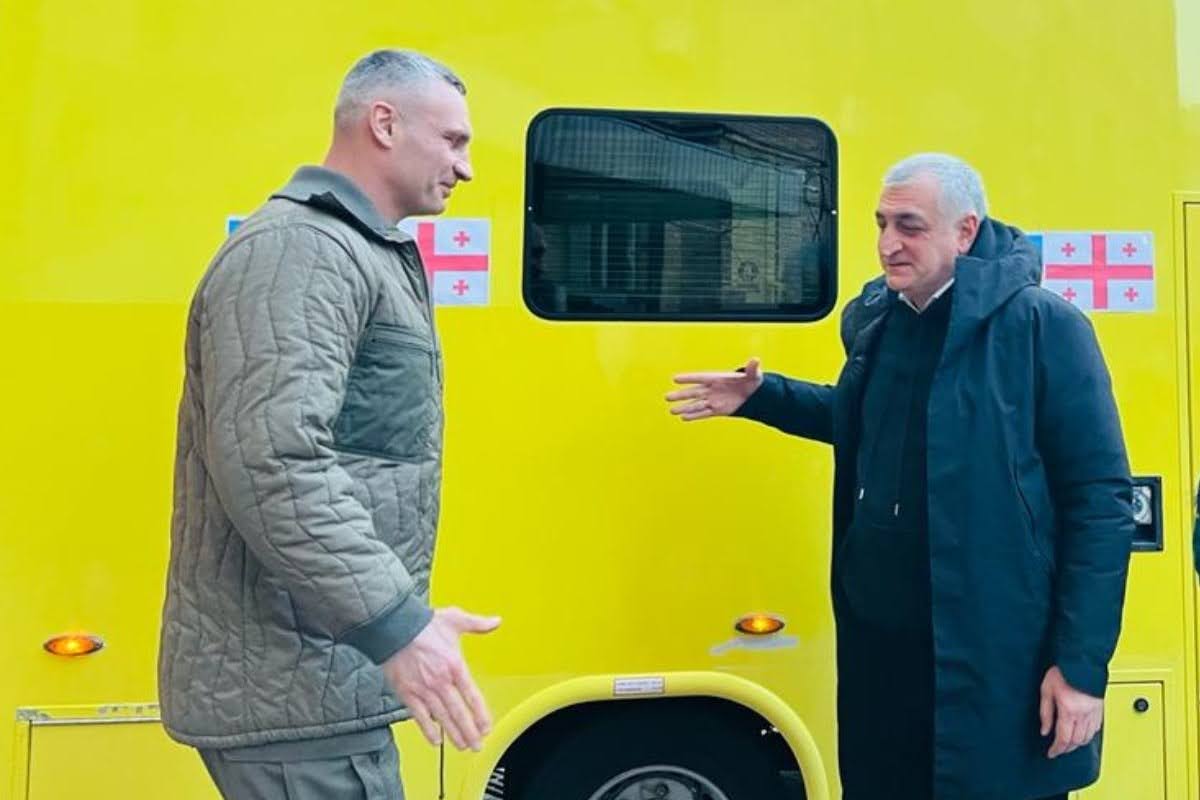
At an outdoor event outside the Orbeliani Palace earlier on Friday, President Salome Zurabishvili said it was unfortunate that Georgia was represented in Kyiv only by opposition figures. She again criticised the government for choosing ‘isolation’ and for ‘distancing [Georgia] from the democratic community’.
Zurabishvili complained that the government used excuses to ‘justify an unclear, so-called “neutral” and “balanced” position’ on Ukraine.’
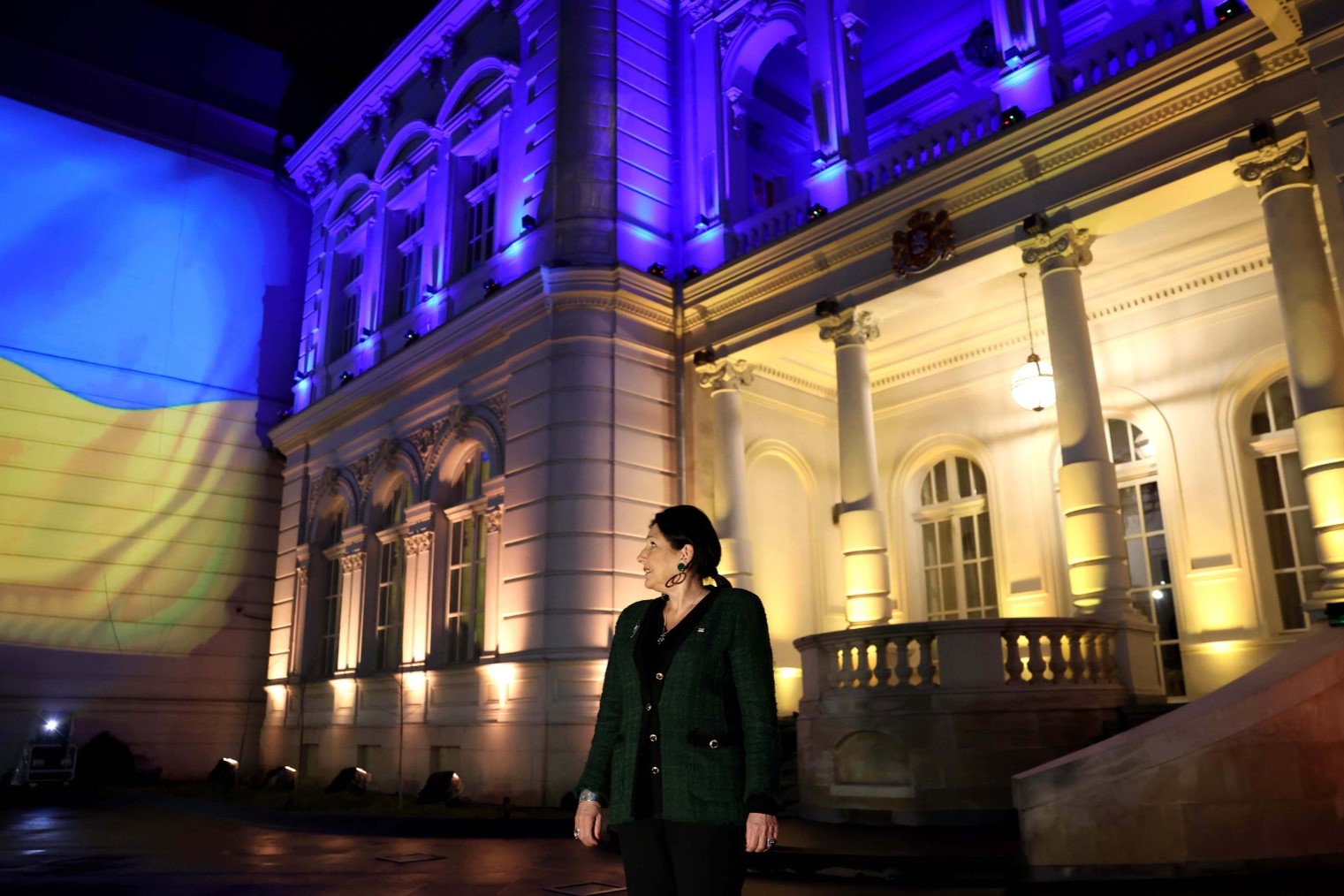
‘Fortunately’, she continued, ‘the Georgian public expressed their position very clearly’.
A year of growing tension
Georgian Dream had faced criticism over their hostile relations with Ukraine long before Russia launched their offensive against Ukraine last year.
However, prior to 2022, the dispute was largely confined to Tbilisi’s discontent over Kyiv hosting several former Georgian officials. Some of them, including Saakashvili, were appointed to official positions, despite Georgia officially requesting they be handed over to face trial.
The Georgian government’s hostility towards Ukraine spiked amidst growing fears that Russia was preparing to invade. On 1 February 2022, the Georgian Dream parliamentary majority adopted a resolution in support of Ukraine without even mentioning Russia.
Massive pro-Ukraine demonstrations erupted in Georgia on 25 February, initially held daily and demanding the government to resign over what organisers described as Prime Minister Irakli Gharibashvili’s ‘pro-Russia’ statements.
Gharibashvili had insisted that international sanctions would not stop Russia and that Georgia would not join them, while also hinting that Ukraine and the West were to blame for the war.
In an NDI poll from around the same period, Georgians were split on whether the country should impose sanctions on Russia, with 49% approving of Gharibashvili’s decision.
The Georgian authorities were also accused by local opposition groups and by Ukraine of proactively obstructing Georgian volunteers from going to fight in Ukraine.
[Read more: Georgian Government threatens to strip Ukraine fighters of citizenship]
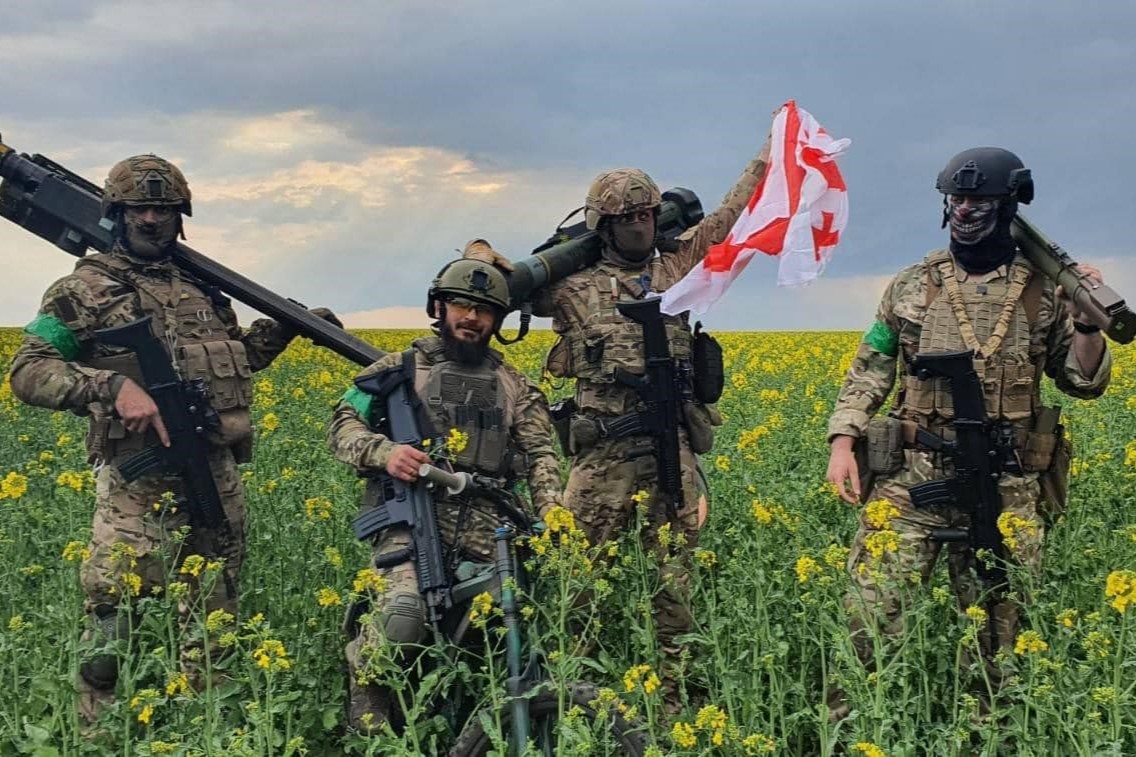
The Georgian authorities effectively beheaded the daily protest movement after detaining leading members of the liberal Shame group on 6–7 March, imposing short prison stints and significant administrative fines against them.
Despite the government’s stance, over the course of the year, Georgians have remained overwhelmingly supportive of Ukraine. Many also expressed dissatisfaction at the government’s failure to introduce visas for Russian citizens, which has allowed tens of thousands of Russians to flee to Georgia.
Critics of the government have also said that the ruling party’s increasingly critical tone towards Ukraine and the West, and their repetition of a conspiracy theory in which Georgia was being pressured to open a ‘second front’ of war with Russia, did not resonate with the prevailing mood in the country.
[Read more on OC Media: Georgian Dream hits out at ‘spies’ and Western-funded ‘extremism’]
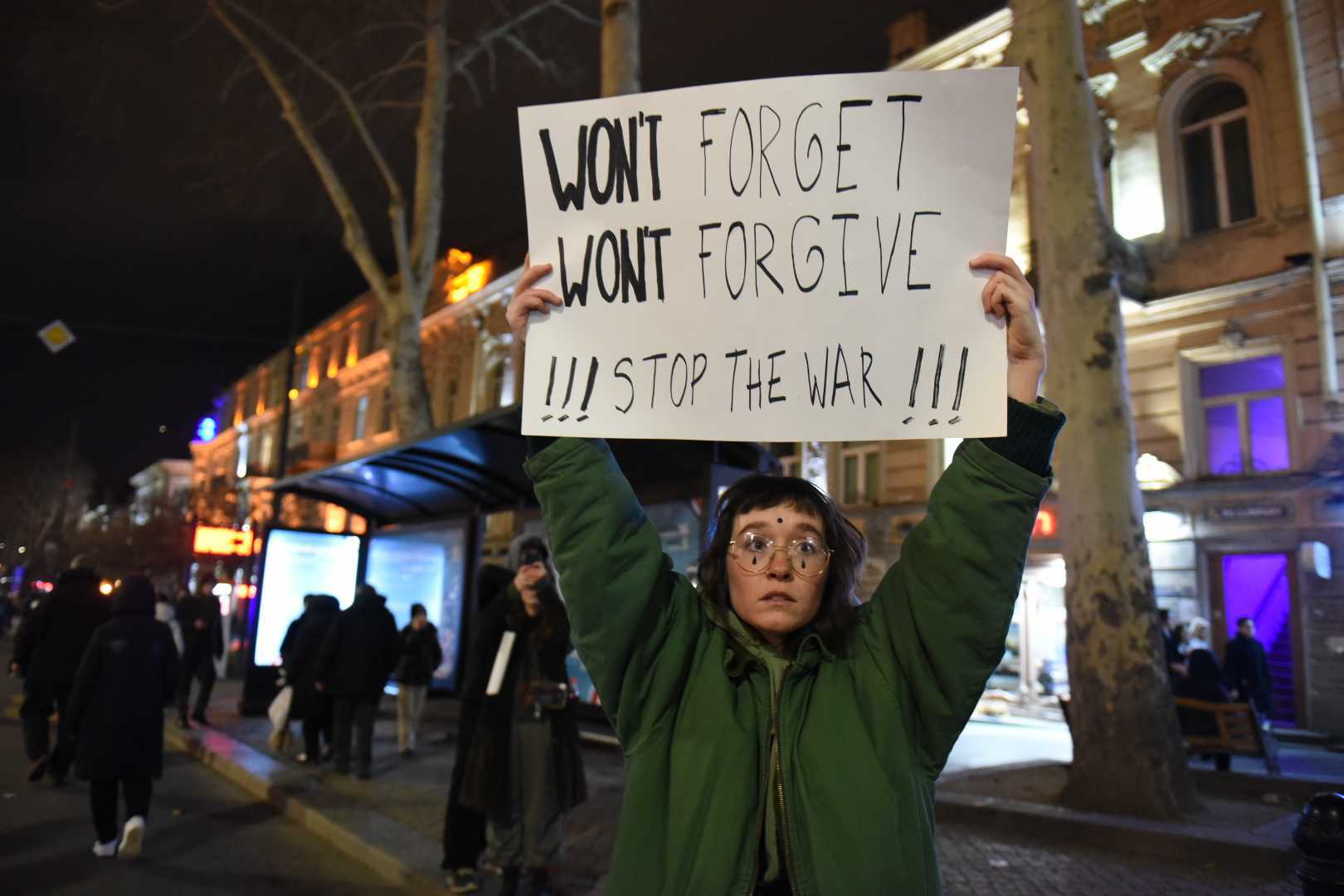
In a poll from ACT conducted in early March 2022, 87% of those surveyed agreed that ‘the war of Ukraine is our war too’, while 72% thought Georgia would be Russia’s next target if Ukraine were to fall.
In another study conducted by CRRC Georgia six months later, only 36% agreed that compromises with Russia could spare Georgia from war with its northern neighbour, while most strongly ruled out that such compromises should include giving up independence or the country’s pro-western foreign policy.






